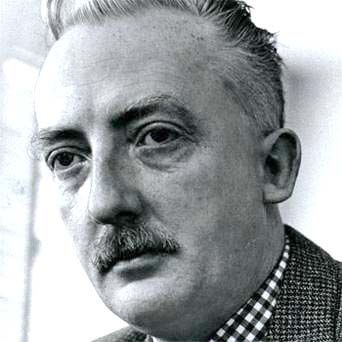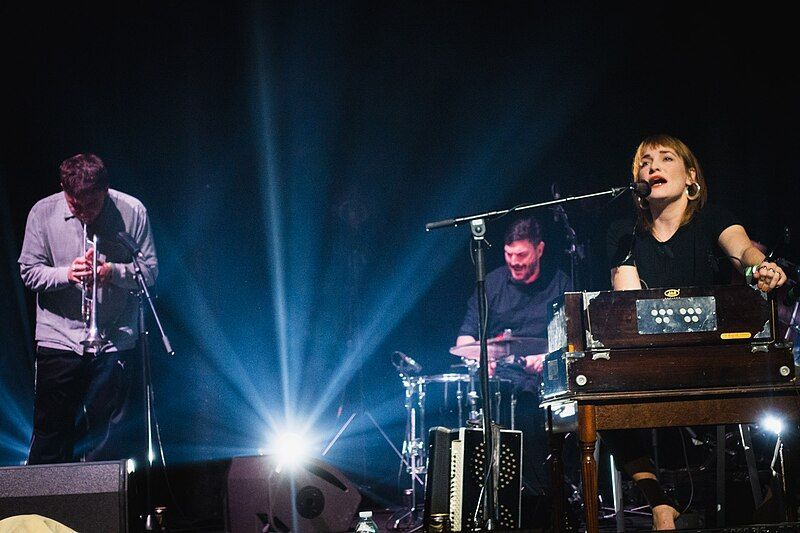There are bands, and then there are great bands. What makes a band great? Well, obviously, the members, particularly if one, or all, have a vision.
Drive, curried with a dash of defiance, doesn’t hurt either, because inevitably you’ll have to make light of the barbs of critics - official and otherwise. Treasure your fans privately but beware of acknowledging each one on social media.
While that may help with likes and clicks it’s time consuming, besides greatness demands a measure of distance and mystique.
Seán Ó’Riada.
Ask Bob Dylan and Neil Young. Where you come from is important. It would be hard to imagine The Beatles exploding out of Kiltimagh; on the other hand, Seán Ó’Riada hailed from rural County Limerick, far from the concrete fields of Liverpool.
U2 are a great Irish band and yet a friend once noted that they might as well have been from New Haven, there’s so little trace of Irish roots in their music. What’s really important is that you sound unlike anyone else.
There’s a Dublin band that fits that bill to the utmost; still, I wasn’t bowled over ten years ago when I first heard "Cold Old Fire" by Lynched. The song was somewhat mournful, sung in an off-hand manner, and I wasn’t sure what it was about.
U2 on stage.
The lone guitar accompaniment was understated, even unremarkable. I soon forgot all about it. Yet a strange melody had taken up residence somewhere in the alcoves of my addled brain. One Sunday morning I played "Cold Old Fire" on Celtic Crush/SiriusXM and instantly identified my persistent earworm.
The second time I played the track I began receiving emails begging for mercy, as listeners couldn’t banish the tune either. Intrigued, I located the lyrics and discovered that "Cold Old Fire" is about the aftermath of the Celtic Tiger. It’s an extraordinary original folk song with a distinctive point of view.
Born to live and die in embers
Of a cold old fire nobody remembers
They hand the ashes back to me
Down the button factory, we’re cattle at the stall…
Lynched, whose members were the brothers Ian and Darragh Lynch, Cormac MacDiarmada, and Radie Peat, soon after changed their name to Lankum.
Each member had decided not to emigrate in the exodus caused by the collapse of the Celtic Tiger. Instead, they sang and played for pints at Trad sessions around Dublin in the deep recession years that followed.
Each had listened to a wide variety of music, and collectively they began to incorporate these earlier roots with the traditional songs that they performed at pubs like The Cobblestone in Smithfield. To my ear their harmonies reflect their urban surroundings, sometimes harsh, even grating, but always very present and so probing.
But it’s their use of drones that sets them apart. A drone - often a bass to low-middle note – played on Hurdy-gurdy, Didgeridoo, Pipes, and Synthesizers - is common to many kinds of ethnic, and even modern art music, but there’s a majesty in the way Lankum employs the drone to highlight their haunting folk tales.
Using up to 30 instruments, synths, and tape decks they often surprise themselves by the overtones they create onstage. Listen to the sonic landscape the band lays down around Radie Peat’s stunning vocal on "Go Dig My Grave." I don’t use the word “masterpiece” lightly but surrendering yourself to this 8:49 minute track is an experience akin to mixing two great bands of the 1970s: Pentangle and Van Der Graf Generator, and then some.
Talk about sounding different than anyone else; from track to track, Lankum often sound different from themselves. Take "Daffodil Mulligan" written by Harry Donovan, and popularized by the legendary Jimmy O’Dea, Lankum’s version grabs you by the scruff of the neck and casts you back to a 1930s Dublin variety hall.
So there you have it. One could argue that Lankum conjures up the complexities of modern Ireland, or could it be they capture stray echoes from the country’s haunted past. But as someone who has been humming "Cold Old Fire" since I began writing this column, I offer you two choices: inure yourself right now with some inconsequential pop confection or face the consequences of a trip through the heart of darkness that surrounds Lankum, a wonderfully unique band from Dublin.







